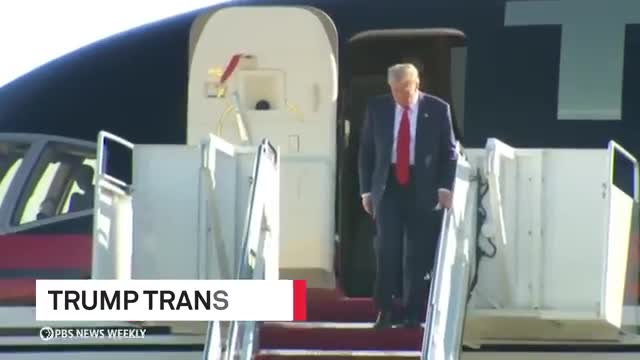Trump's triumphant return reshapes Washington power dynamics
This article was created by AI summarizing key points discussed. AI makes mistakes, so for full details and context, please refer to the video of the full meeting. Please report any errors so we can fix them. Report an error »

Donald Trump made a significant return to Washington this week, meeting with House Republicans and President Joe Biden as he prepares for his upcoming presidency. With both the House and Senate under Republican control, Trump emphasized the importance of unity among party members during a closed-door meeting, where he reiterated his commitment to moving swiftly on his agenda.
In a notable moment, tech entrepreneur Elon Musk received a standing ovation from attendees after being appointed, alongside Vivek Ramaswami, to lead a new initiative aimed at enhancing government efficiency. Trump expressed the need for innovative perspectives to streamline operations and reduce the federal deficit.
Following his meetings, Trump engaged in a traditional transition discussion with Biden, marking a stark contrast to the previous election cycle when he did not extend a similar courtesy to Biden. Both leaders expressed their commitment to a smooth transition, with Biden's wife, Jill, reaching out to Melania Trump to offer assistance.
Trump also announced key appointments for his administration, including Stephen Miller as deputy chief of staff and Tulsi Gabbard as director of National Intelligence. A controversial choice for attorney general, Florida Representative Matt Gaetz, was also named, reflecting Trump's reliance on loyal allies.
On Capitol Hill, Senate Republicans elected John Thune as their new leader, signaling a shift in party dynamics. Thune, known for his communication skills and bipartisan relationships, faces the challenge of navigating his past disagreements with Trump while uniting the party to advance the president-elect's agenda. His leadership will be crucial as the Senate traditionally serves as a check on executive power.
Overall, Trump's return to Washington marks the beginning of a new chapter for the Republican Party, with significant implications for governance and party unity as they prepare to implement their agenda in the coming months.
In a notable moment, tech entrepreneur Elon Musk received a standing ovation from attendees after being appointed, alongside Vivek Ramaswami, to lead a new initiative aimed at enhancing government efficiency. Trump expressed the need for innovative perspectives to streamline operations and reduce the federal deficit.
Following his meetings, Trump engaged in a traditional transition discussion with Biden, marking a stark contrast to the previous election cycle when he did not extend a similar courtesy to Biden. Both leaders expressed their commitment to a smooth transition, with Biden's wife, Jill, reaching out to Melania Trump to offer assistance.
Trump also announced key appointments for his administration, including Stephen Miller as deputy chief of staff and Tulsi Gabbard as director of National Intelligence. A controversial choice for attorney general, Florida Representative Matt Gaetz, was also named, reflecting Trump's reliance on loyal allies.
On Capitol Hill, Senate Republicans elected John Thune as their new leader, signaling a shift in party dynamics. Thune, known for his communication skills and bipartisan relationships, faces the challenge of navigating his past disagreements with Trump while uniting the party to advance the president-elect's agenda. His leadership will be crucial as the Senate traditionally serves as a check on executive power.
Overall, Trump's return to Washington marks the beginning of a new chapter for the Republican Party, with significant implications for governance and party unity as they prepare to implement their agenda in the coming months.
Don't Miss a Word: See the Full Meeting!
Go beyond summaries. Unlock every video, transcript, and key insight with a Founder Membership.
✓
Get instant access to full meeting videos
✓
Search and clip any phrase from complete transcripts
✓
Receive AI-powered summaries & custom alerts
✓
Enjoy lifetime, unrestricted access to government data
30-day money-back guarantee
